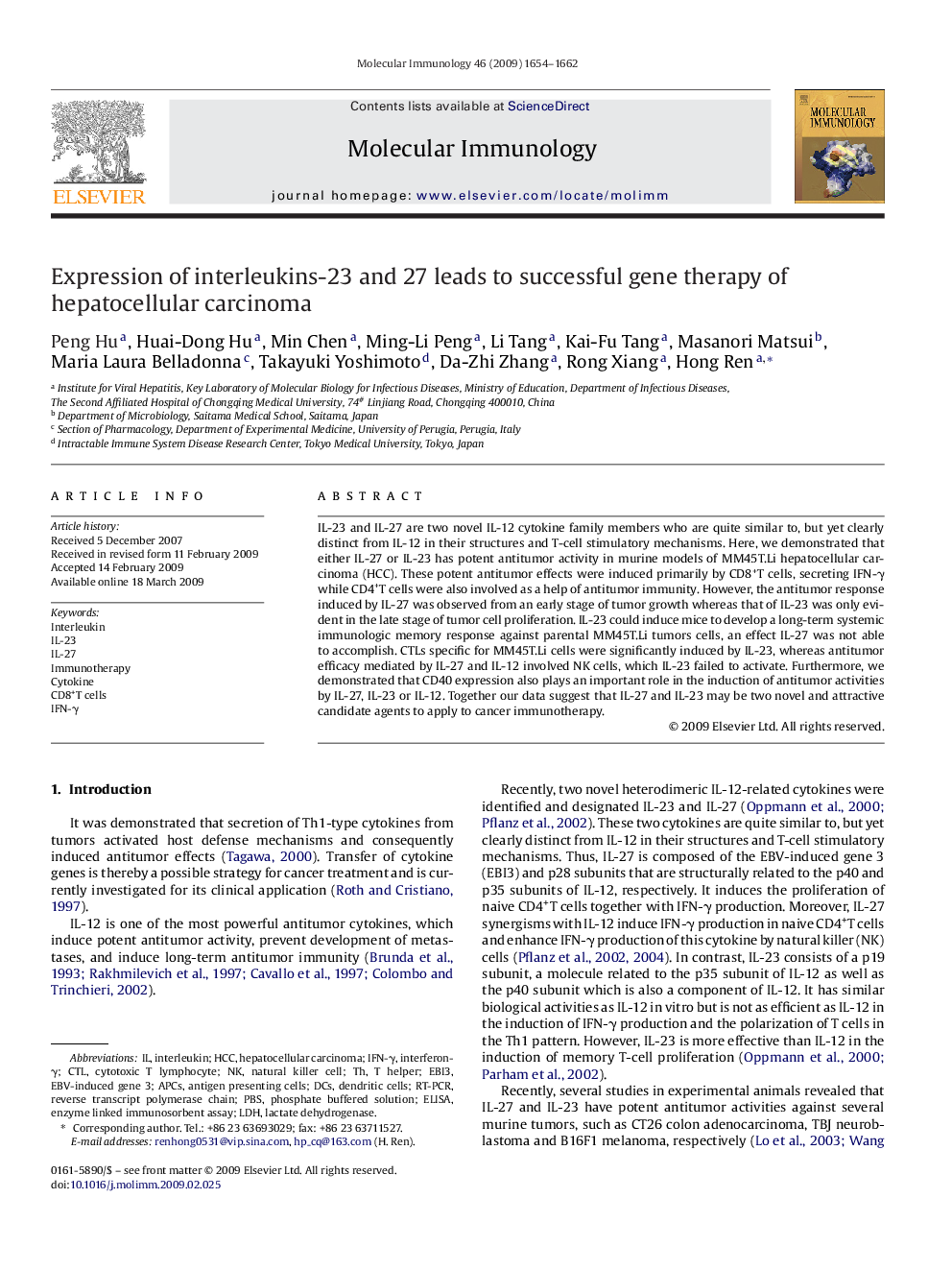| Article ID | Journal | Published Year | Pages | File Type |
|---|---|---|---|---|
| 2832186 | Molecular Immunology | 2009 | 9 Pages |
IL-23 and IL-27 are two novel IL-12 cytokine family members who are quite similar to, but yet clearly distinct from IL-12 in their structures and T-cell stimulatory mechanisms. Here, we demonstrated that either IL-27 or IL-23 has potent antitumor activity in murine models of MM45T.Li hepatocellular carcinoma (HCC). These potent antitumor effects were induced primarily by CD8+T cells, secreting IFN-γ while CD4+T cells were also involved as a help of antitumor immunity. However, the antitumor response induced by IL-27 was observed from an early stage of tumor growth whereas that of IL-23 was only evident in the late stage of tumor cell proliferation. IL-23 could induce mice to develop a long-term systemic immunologic memory response against parental MM45T.Li tumors cells, an effect IL-27 was not able to accomplish. CTLs specific for MM45T.Li cells were significantly induced by IL-23, whereas antitumor efficacy mediated by IL-27 and IL-12 involved NK cells, which IL-23 failed to activate. Furthermore, we demonstrated that CD40 expression also plays an important role in the induction of antitumor activities by IL-27, IL-23 or IL-12. Together our data suggest that IL-27 and IL-23 may be two novel and attractive candidate agents to apply to cancer immunotherapy.
